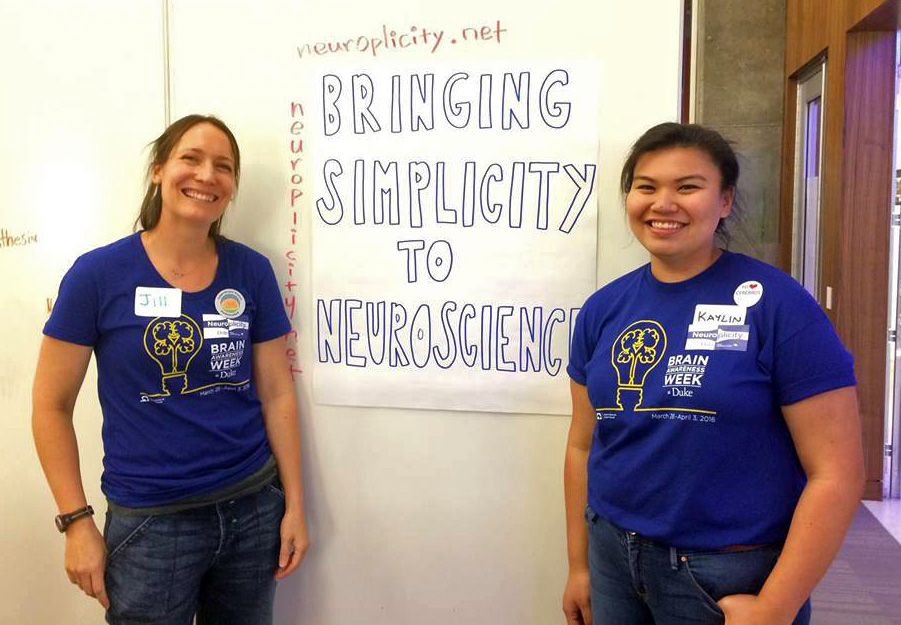Postdoc Perspectives: Jill Wentzell
September 15, 2016
 Jill Wentzell, Ph.D., Postdoctoral Scholar in Biology
Jill Wentzell, Ph.D., Postdoctoral Scholar in Biology
Bass Connections Project Team: Neuroplicity: Leveraging New Media and Digital Storytelling to Connect Society to Neuroscience
Wentzell, Mark Olson and Nina Sherwood led a Bass Connections project aimed at improving the public’s understanding of basic neuroscience research, in collaboration with graduate students in Bioethics & Science Policy and Experimental & Documentary Arts and undergraduates majoring in Neuroscience and Psychology. The team developed creative means of communicating key issues and developments in memory and disease-related brain research to a broad, nonspecialist audience. Through a website and videos, the team furthered the goals of communicating neuroscience fundamentals, the pleasures and challenges of conducting research and the daily practice of “doing science.” Team members developed and tested out a Neuroscience expansion pack for the popular game Cards Against Humanity at a Periodic Tables event in Durham.
When I started as a postdoc at Duke, I had the opportunity to join a Bass Connections team, specifically the Neuroplicity team that aims to make neuroscience research more accessible to the public through innovative media. I’ve always been interested in science education, communication and outreach, so the chance to weave those passions into working with undergraduates was incredibly exciting.

As a scientist, I feel a responsibility for the public dissemination of research, which requires communication skills that are often different from those needed for success in one’s field. It’s very easy in academia to surround yourself with people who know all the same jargon, whereas with interdisciplinary teams, like those formed in Bass Connections, people are forced to communicate more clearly.
Bass Connections is an exciting model for learning because students are given real-life projects, often addressing a major problem or development of new technology and resources. At the time I joined, Bass Connections was only in its second year and I didn’t know any other postdocs participating, so I didn’t know what to expect. Each team is unique, so the road map to success is variable and requires open-minded adjustments along the way. These are the kinds of projects that would not happen without the support that Bass Connections offers.
Initially our team spent a lot of time brainstorming what type of media was best for increasing public accessibility to research. The faculty leaders let the undergraduate team members make the major decisions on who the audience should be and how best to reach them.

Next we went to work figuring out what the public already knows about neuroscience research. This led to the production of the “People on the Street” video series, which gave us all a better idea of our audience and how to achieve our goals. Plus, these videos were a lot of fun to make! Watching everyone work as a cohesive unit and seeing undergraduates gradually take charge and feel a strong sense of ownership of the project was a great learning experience for everyone involved.
Over the course of two years working with Neuroplicity, I developed better communication, mentorship and project management skills. These are skills that all postdocs need as they move into the academic or corporate job market. It was a truly rewarding experience watching our team of faculty, undergraduates, graduate students and postdocs, people with diverse backgrounds and interests, working towards a common goal. Bass Connections was a great learning opportunity, but most importantly working with Neuroplicity allowed me to connect with team members initially as colleagues, but over time as friends.
Learn More
- Watch team member Kaylin Tsukayama (pictured above at right) talk about Neuroplicity during Brain Awareness Week.
- Browse faculty perspectives on Bass Connections.
- Find out how to get involved.
